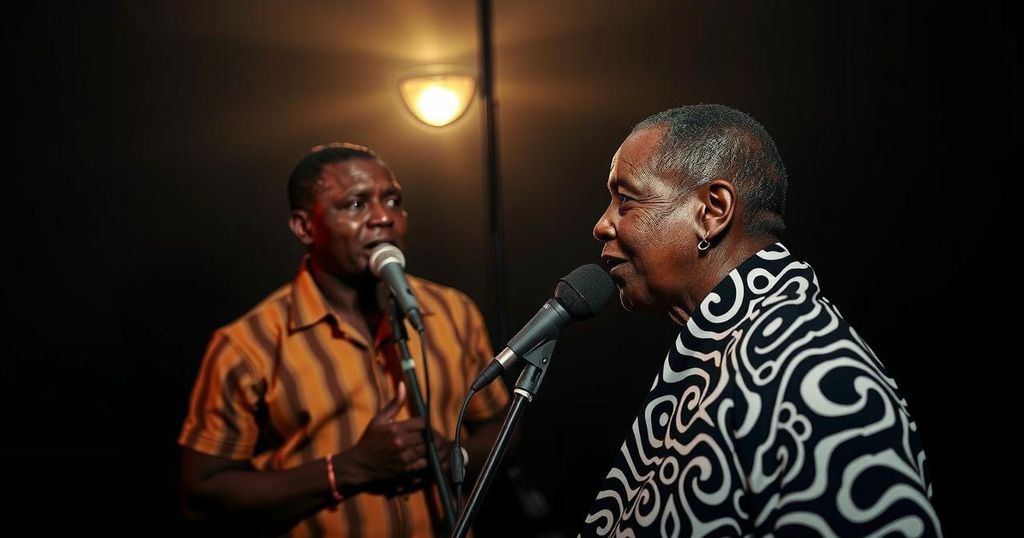Botswana’s ruling party, the Botswana Democratic Party, has faced a shocking electoral defeat, losing parliamentary majority after nearly sixty years of governance. Opposition parties won 31 of the 61 parliamentary seats, indicating a significant political shift in the nation. The economic downturn due to a drop in diamond demand has contributed to the party’s loss and rising unemployment rates.
Botswana’s ruling party, the Botswana Democratic Party (BDP), faced an unexpected electoral defeat, marking the end of its nearly six-decade reign. Preliminary reports indicate that President Mokgweetsi Masisi’s party managed to secure only one seat in the recent parliamentary elections held on Friday, resulting in opposition factions gaining significant ground. In total, opposition parties captured 31 of the 61 parliamentary seats according to the electoral commission’s initial counts. The Umbrella for Democratic Change, under the leadership of seasoned human rights lawyer Duma Boko, emerged as a prominent challenger with 19 seats. Furthermore, the Botswana Congress Party, led by economist Dumelang Saleshando, claimed seven seats, while the Botswana Patriotic Front aligned with former President Ian Khama secured five seats. Botswana’s governance structure allows the party with a parliamentary majority the authority to appoint the president and establish a government. Mr. Masisi, who previously held expectations of a parliamentary majority and a second term in office, is now faced with a significant political transition. Botswana has long been recognized as one of Africa’s most stable democracies, often exemplified as a success story on the continent. Nevertheless, the economy, heavily reliant on diamond mining—which constitutes over 80 percent of its exports—has faced challenges due to a global decline in demand. According to the International Monetary Fund, growth in Botswana is anticipated to decelerate to 1 percent in 2024, down from 2.3 percent the previous year and 5.5 percent in 2022, while unemployment has surged to 27 percent.
Botswana has a history of political stability and a reputation for being one of Africa’s most successful democracies. Since gaining independence in 1966, the Botswana Democratic Party has ruled without interruption, overseeing a period of significant economic growth largely fueled by diamond mining. However, recent economic downturns due to reduced demand for diamonds have placed considerable strain on the nation’s economy, leading to rising unemployment and a decline in growth projections. The recent elections mark a pivotal shift in the political landscape of Botswana, showing a notable change in the citizens’ voting patterns and sentiments toward the reigning party.
The recent electoral results in Botswana signify a dramatic shift in the political landscape, reflecting a potential turning point after sixty years of uninterrupted rule by the Botswana Democratic Party. The opposition’s victory highlights public sentiment against economic challenges, including rising unemployment and declining diamond demand, which have troubled the nation. The outcome may pave the way for new leadership and policy directions as the country navigates its future amid economic uncertainties.
Original Source: www.aljazeera.com







